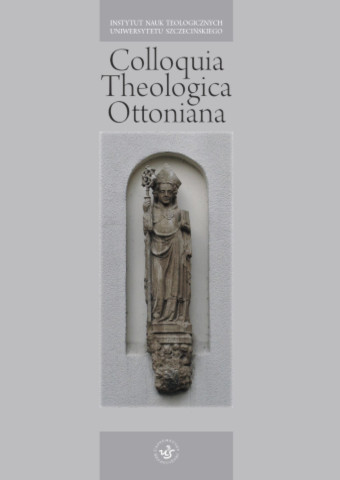
ISSN: 1731-0555
eISSN: 2353-2998
OAI
DOI: 10.18276/cto.2020.36-05





Issue archive /
36/2020
"Ressentiment" jako uczucie reaktywne i faktor życia moralnego w świetle studium genealogicznego Friedricha Nietzschego "Zur Genealogie der Moral. Eine Streitschrift"
("RESSENTIMENT" AS A REACTIVE EMOTION AND FACTOR OF MORAL LIFE IN LIGHT OF THE GENEALOGICAL STUDY OF FRIEDRICH NIETZSCHE "ZUR GENEALOGIE DER MORAL. EINE STREITSCHRIFT")
| Authors: |
Tomasz
Drożyński

Papieski Uniwersytet Gregoriański w Rzymie |
| Keywords: | Nietzsche resentment (ressentiment) slave morality genealogy |
| Data publikacji całości: | 2020-12-20 |
| Page range: | 15 (109-123) |
Abstract
Friedrich Nietzsche (1844–1900), a critic of Western culture and Christianity in particular, was the author of "Zur Genealogie der Moral" (1887), a polemical study on the various manifestations of the constitution of morality. According to the German philosopher, ressentiment appears to be important in the genealogical study of morality. This specialised term, for which Nietzsche finds no equivalent in his native language, is the key to understanding the new construction of morality from the perspective of the revaluation of values (Umwertung aller Werte). This article is a selective attempt to describe ressentiment as a reactive feeling and a fact of human moral life by showing the semantic scope of the concept and presenting the functioning of the psychological mechanism, its meaning, and the consequences it produces. The lexical analysis of the concept allows us to examine, in a genealogical-Nietzschean way, what is the essential content of the terminus technicus itself. The semantic analysis leads to the discovery of ressentiment as a certain attitude of a moral nature that has its proper place in the spiritual-psychic structure of man. Ressentiment comes down to experiencing unfriendly feelings, usually directed against another human being. Using the knowledge of this mechanism, one can see a practical application in Nietzsche’s philosophy (dualism: the weak-strong and the victory of slave morality). The essential role of ressentiment in the moral life of man appears as a panacea serving to alleviate suffering. The product of ressentiment is slave morality, which has been victorious in history because of the weakness of the human condition as a “sick animal”. This mechanism is the source of Judeo-Christian morality. Ressentiment produced the poisoned values of Christianity and, as a result, of the entire European civilisation and decadent culture.
In "Zur Genealogie der Moral", Nietzsche repeatedly describes man as possessed by resentment – “der Mensch des ressentiment”. The man possessed by ressentiment is “the cellar animal, full of vengeance and hatred” and the discoverer of an impure conscience.
Download file
Article file
Bibliography
| 1. | Banasiak B., (Aktywne) Zapomnienie, „Lamus. Pismo Kulturalno-Artystyczne” 2 (2008), s. 10–14. |
| 2. | Bittner R., Ressentiment, w: Nietzsche, Genealogy, Morality. Essays on Nietzsche’s On the Genealogy of Morals, red. R. Schacht, Berkeley–Los Angeles–London 1994, s. 127–138. |
| 3. | Czachorowski M., [hasło:] Resentyment, w: Powszechna encyklopedia filozofii, red. A. Maryniarczyk, t. VIII, Lublin 2007, s. 764–765. |
| 4. | Deleuze G., Nietzsche i filozofia, Warszawa 1993. |
| 5. | Doroszewski W., Słownik języka polskiego, Warszawa 1965. |
| 6. | Festa F.S., Das Ressentiment. Da Nietzsche a Scheler: quale edificazione della morale?, Roma 2013. |
| 7. | Frosztęga B., Karna J., Krzyżanowska D., Wielki słownik polsko-francuski, t. 3, Warszawa 1981. |
| 8. | Gibbs L., Aesop’s Fables in Latin: Ancient Wit and Wisdom from the Animal Kingdom, Illinois 2009. |
| 9. | Gorczyca J., Essere per l’altro. Fondamenti di etica filosofica, Roma 2011. |
| 10. | Hartman J., Doctor perversus, w: F. Nietzsche, Z genealogii moralności, Kraków 2006, s. 127–141. |
| 11. | Janaway C., Beyond Selflessness. Reading Nietzsche’s Genealogy, Oxford–New York 2009. |
| 12. | Krajewski K., [hasło:] Resentyment, w: Encyklopedia katolicka, red. E. Gigilewicz, t. XVII, Lublin 2012, s. 16. |
| 13. | La Fontaine J. de, Bajki, Warszawa 1876, s. 164–167. |
| 14. | Legowicz J., Zarys historii filozofii, Warszawa 1976. |
| 15. | Magris A., Nietzsche, Brescia 2003. |
| 16. | Malinowski M., Resentyment, https://obcyjezykpolski.pl/resentyment/ (dostęp:10.10.2020). |
| 17. | Migotti M., Slave Morality, Socrates, and the Bushmen: A Critical Itroduction to „On the Genelaogy of Morality”, Essay I, w: C.D. Acampora, Nietzsche’s On the Genealogy of Moral, Lanham 2006, s. 109–129. |
| 18. | Miller Ch.A., Nietzsche’s Discovery of Dostoevsky, „Nietzsche-Studien” 2 (1973), s. 202–257. |
| 19. | Montinari M., Cronologia, w: F. Nietzsche, Genealogia della morale, Milano 2011, s. 161–165. |
| 20. | Nietzsche F., Z genealogii moralności, Kraków 2006. |
| 21. | Orsucci A., Genealogia della morale. Introduzione della lettura, Roma 2001. |
| 22. | Psychologia. Podręcznik akademicki, red. J. Strelau, t. II, Gdańsk 2000. |
| 23. | Richardson J., Nietzsche’s System, Oxford–New York 1996. |
| 24. | Salaquarda J., Nietzsche and the Judaeo-Christian tradition, w: B. Magnus, K.M. Higgins, The Cambridge Companion to Nietzsche, New York 1996, s. 103–104. |
| 25. | Sans G., Al crocevia della filosofia contemporanea, Roma 2010. |
| 26. | Skirl M., Ressentiment, w: Nietzsche Handbuch. Leben – Werk – Wirkung, red. H. Ottmann, Stuttgart 2000, s. 312–313. |
| 27. | Słownik języka polskiego, red. M. Szymczak, t. 3, Warszawa 1994. |
| 28. | Stellino P., Affekte, Gerechtigkeit und Rachein Nietzsches Zur Genealogie der Moral, w: Nietzscheforschung Jahrbuch der Nietzsche-Gesellschaft, red. V. Gerhardt, R. Reschke, vol. XV, Berlin 2007, s. 247–256. |
| 29. | Tatarkiewicz W., Historia filozofii, t. 3, Warszawa 2002. |
| 30. | Yovel Y., Nietzsche and the Jews: The Structure of an Ambivalence, w: C.D. Acampora, Nietzsche’s On the Genealogy of Moral, Lanham 2006, s. 277–289. |